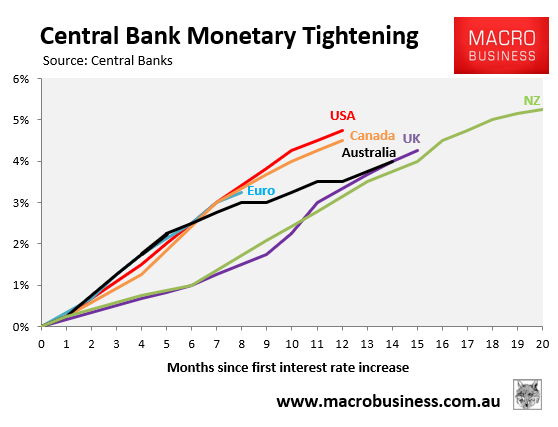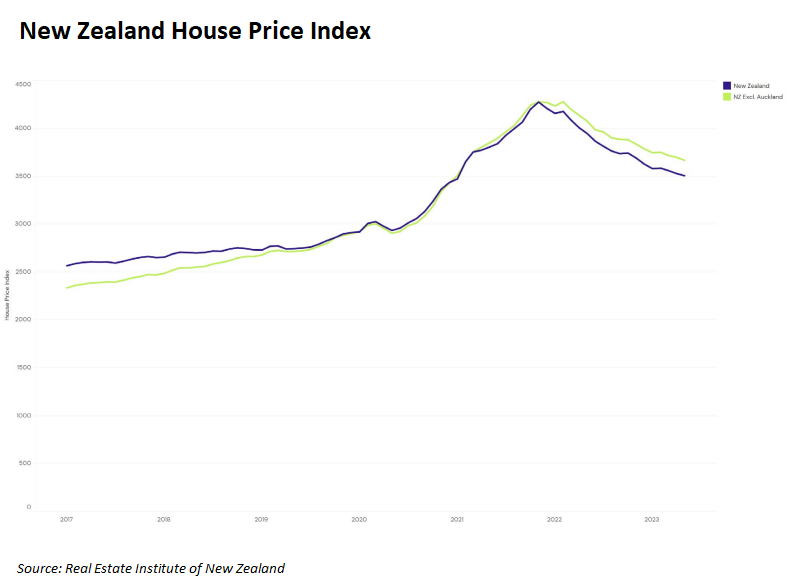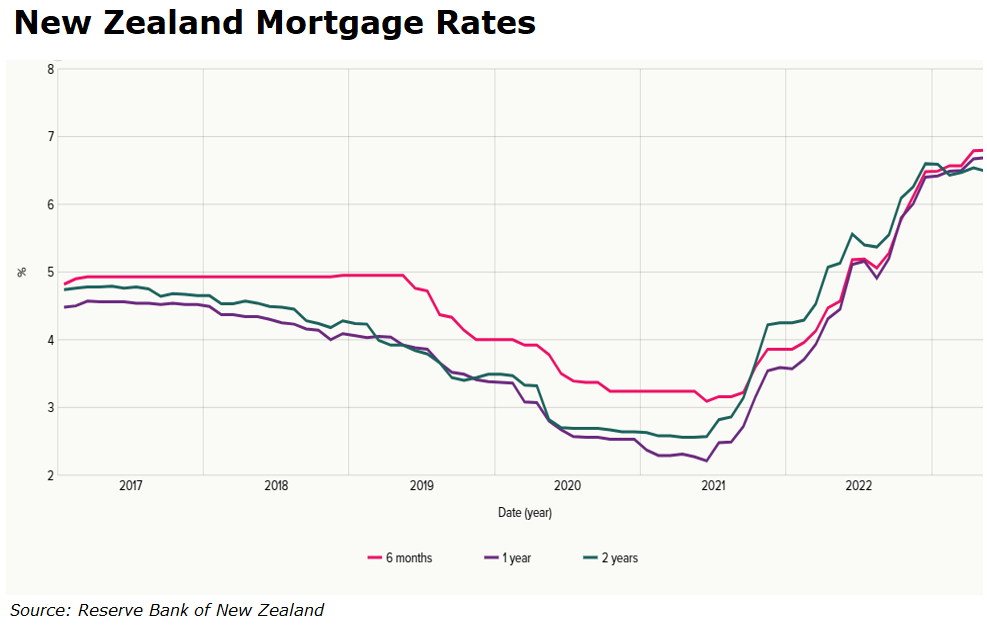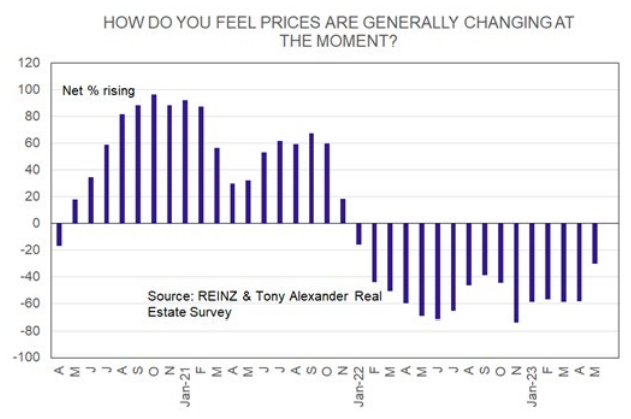The New York Times ran a feature article on New Zealand’s housing market entitled “Where Housing Prices Have Crashed and Billions in Wealth Have Vanished”.
The article explains how the Reserve Bank of New Zealand generated one of the world’s biggest house price booms over the pandemic.
Now the Reserve Bank is delivering one of the world’s biggest house price busts by lifting interest rates higher than nearly every other advanced nation.

“Few countries have experienced as wide of a swing as New Zealand, which slipped into a recession last week”, the New York Times wrote.
“House prices there soared almost 50% during the pandemic as people took advantage of low mortgage rates and relaxed lending rules”.
“But in November 2021, the central bank began one of the most aggressive rate-tightening cycles in the world to tackle rising inflation”.
“Since then, prices have fallen 17.5 percent, eradicating more than $6 billion in household wealth, according to some estimates”.
The next chart shows the boom and bust in New Zealand house prices:

The driver of the decline has obviously been the more than doubling of mortgage rates across New Zealand, courtesy of the Reserve Bank:

Tony Alexander’s latest survey of real estate agents revealed “a net 58% of agents were seeing prices still falling”, suggesting prices will fall further over coming months:

However the survey did show improvements in a number of areas, with “the net proportions of agents seeing more people attending auctions and open homes are at their highest levels in over two years”.
Furthermore, the survey showed that “FOOP – the fear of overpaying – has fallen to its lowest level since January 22”.
I expect New Zealand house prices to rebound after the 14 October general election.

